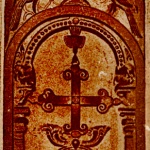 Everyone longs for connection. We all crave closeness but it can seem so elusive at times. In the face of the struggle to fulfill that desire to be in synch with others, we can often despair that it was ever meant to be.
Everyone longs for connection. We all crave closeness but it can seem so elusive at times. In the face of the struggle to fulfill that desire to be in synch with others, we can often despair that it was ever meant to be.
We shouldn’t. The Theology of the Body reminds us that we were created to live in unity with God and others. And, of course, this idea is deeply rooted in scripture. Genesis (2:18) asserts that it was God’s intention from the very beginning that would live in intimate communion with others. Jesus, himself, prayed for unity we all crave in John 17:20-23 where he said, “Neither pray I for these alone, but for them also which shall believe on me through their word; That they all may be one; as you, Father, are in me, and I in you, that they also may be one in us: that the world may believe that you have sent me. And the glory which you gave me I have given them; that they may be one, even as we are one.” The desire for unity that is written on the human heart points to this call to ultimate unity between God, us, and all of humankind.
A Taste of Heaven
All of us have experienced at least flashes of this unity in our lives. Every once in a while, God gives us a taste of that connection for which we were created and to which we are destined. Even if it is rare, most of us have had that experience of being in the presence of someone who, for some reason, in that moment, makes everything seem peaceful, makes connection seem easy and helps it all just “makes sense.” Jung called this experience “synchronicity” other psychologists like, Mihaly Csikszentmihalyi, call it “flow.” But whatever you call it, it is a universal longing of the human heart and our happiness depends on our ability to fulfill that longing.
Unity and Holiness
What does it take to cultivate this sense of unity with others? Most people would say, “time” or “quietness” and to some degree they’re right. A person needs both of these things to cultivate the qualities that contribute to their ability to be in synch with others. That said, it’s possible to have this sense with someone even when you don’t have a lot of time and are in a noisy crowd of thousands. For instance, people who experienced Pope John Paul II, or Mother Theresa, or even now, Pope Francis, will tell you that even if they only got a few seconds with one of these holy people, they were made to feel like they were the only ones who mattered in that moment. There was a transcendent connection–in the middle of the chaos of the crowd–where one felt “in synch” (in synchronicity) with the other.
Christian mystical theologians tell us that this ability to experience and create moments of unity is a sign of holiness. Since God is one, and gathers all things into himself so that all may be one, the closer we draw to God, the more we are able to experience unity and share that experience of oneness with another.
Cultivating Connection: Four Qualities
So we see that the ability to be in synch with others isn’t so much a product of our environment as much as it is a state of being, a mindspace if you will, in which it becomes possible to take down the barriers that separate us from each other and, in turn, create intimate connection. Psychologists who study these states of being as they naturally occur have identified 4 qualities that enable a person to cultivate that sense of connection with another. We all have the potential to exhibit these qualities and chances are we already exhibit them to some degree or another. The trick is to develop them to the degree that we can experience them consistently and simultaneously. The four qualities that lead to this sort of soulful connection between people are known by the acronym COAL; Curiosity, Openness, Acceptance, and Love. Let’s look at each of these qualities.
COAL Fuels Connection
Curiosity is defined, in this context, as the genuine and honest desire to know another person; their story, thoughts, feelings, and heart. This type of curiosity is driven by a sincere desire to understand the other person and appreciate the world through their eyes.
Openness is the willingness to leave my comfort zone for sake of connection with the other. We often resist opportunities to see the world through others because it can be disturbing to our own sense of reality (as Calvin, below, kindly illustrates). A healthy sense of openness allows us to leave our own worldview intact while we try on the worldview of another. The goal of openness is not so much agreement with the other as it is understanding of the other.
Acceptance is the willingness to hear the other person’s thoughts, feelings, ideas and life story without judgment. This is especially tricky for Christians because we believe, rightly, in absolute truth. It can be hard to feel that I can be accepting of another’s experience and still be committed to the proposition that there is a right way to live and a right path to walk. Often, curiosity and openness will lead me to encounter people who are very different from me and who’s own worldview clashes significantly, even violently, with mine. Acceptance of the other’s worldview does not necessarily mean agreement. It means that I am willing to understand that the other persons views represent a sincere and honest attempt on their part to meet their needs or fulfill their good intentions. The means by which they attempt to meet those needs or intentions may be deeply flawed, and I might think that it would be better if they changed, but in accepting them, I respect how they came to have the views they do and I respect the needs and intentions that drive those views. For Christians, this concept might be best expressed as the spiritual practice of charitable interpretation.
Loving represents a genuine commitment to working for the good of other. No matter how much I may disagree with someone or how different they may be from me, I actively demonstrate my commitment to doing what I can to making their life easier, more pleasant, more edifying, and healthier in whatever way I can.
The more we intentionally cultivate these four virtues in our life and relationships the more likely it is that we will have those flashes of connection, those moments of synchronicity and unity that satisfy the ache in our hearts for intimacy. The closer we come to fulfilling Jesus’ prayer that all might be one in Him.















